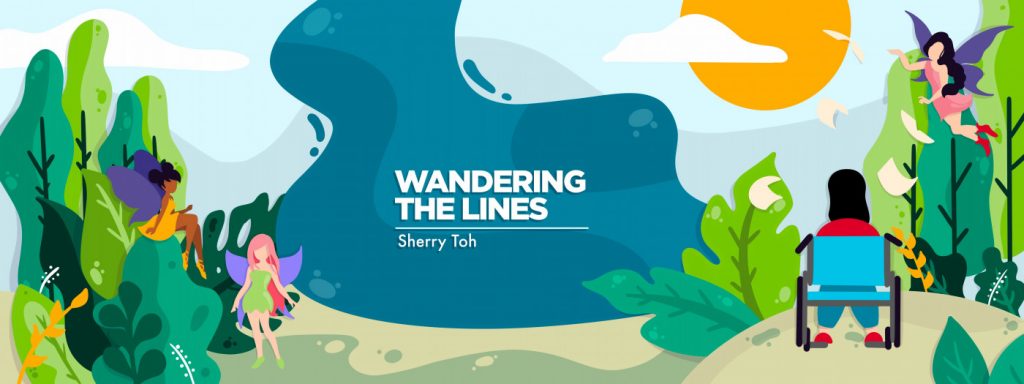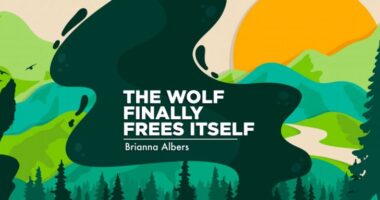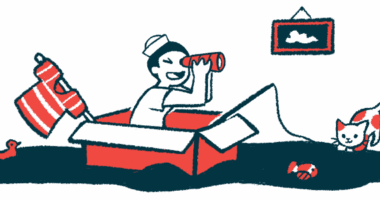‘I’m in Love.’ Ain’t That the Worst Thing You Ever Heard?


Like all young girls, I was part of the target demographic for romance. Disney and Barbie movies, pop music, young adult novels, TV dramas — you get the idea. Romance was sold to me everywhere, and I bought it happily, if ignorantly. Hence, like all young girls, I grew up desiring romantic love as it was taught to me, hopeful I’d meet someone special one day.
There was a wrinkle in my fantasies, however: I had SMA. Girls in wheelchairs like me didn’t appear in fairy tales where princes would sweep us off our feet. The older I got, the more I understood society generally didn’t value disabled girls with degenerative diseases, and the more my hopefulness waned.
Who would want a partner whose health will continue to worsen? Society is structured in such a way that if potential partners for disabled people aren’t chased away by physical deformities or the lack of proper emotional support for the disabled and their partner, they’ll be chased away by the financial toll. Society undervalues disabled lives, except that it places an astronomical price tag on our healthcare.
People might tell us that our value comes from within, or that the love from our families and friends should be enough. They might be right, too, and the attempt to comfort us might be appreciated. But it’s hard to listen to that advice when said family and friends are either married or dating, or if they’re single by choice rather than circumstance.
Hell, it’s even hard to look at the rare SMA patients who have happy, loving romantic relationships. When I first came across videos of YouTuber Shane Burcaw with his wife, Hannah, I instantly made insecurity-fueled, envious comparisons.
“Well, it’s still a traditional relationship. He’s a straight guy, and his wife is a woman. Women are traditionally expected to be caregivers. I doubt I’ll find someone who’s OK with my bisexuality and disability.”
“They’re Americans, I’m a Singaporean. American culture is more open-minded than Singapore’s.”
“He’s white, his spine is straight, he has a successful career, and he requires less care than I do. I’m Asian, a hunchback, I earn less than a thousand dollars a month, and I need someone to shift my posture every half hour.”
On and on I’d go — never mind that Shane and Hannah’s advocacy worked to normalize interabled relationships.
Love’s cruel fate
It wasn’t until last year that I gained healthier perspectives on dating and self-worth. Funnily enough, my mental health had to hit rock bottom first.
According to my neurologist last year, my chronic neuropathy would only worsen due to my spine’s curvature. It felt like a death sentence. I thought to myself, “No one will ever want me now. I’m as unlovable as they come.”
I didn’t expect to fall in love with my best friend — who, coincidentally, is an American also named Hannah — in the midst of my catastrophizing. More than that, I didn’t expect her to fall in love with me, as I am. In doing so, she showed me that my disability doesn’t disqualify me from romantic love. Conversations in which she normalizes my disability are common and casual, and that’s helped me see how ridiculous ableist sentiments truly are.
Just the other day, when I lamented my inability to cook or clean for her and my need to keep my distance if she’s ill, she said, “If I live alone, no one is taking care of me either. I’d be social distancing daily.”
Hannah reframing the scenario made me realize that negotiating boundaries and expectations is something all partners do, disabled or not. And the reality is, caring for someone emotionally and ensuring they’re happy and healthy is a form of caregiving that I can do. We just don’t label it as caregiving, as with other mundane tasks we perform for loved ones.
Hannah and I have come a long way since our “breakup” last August. We’re still not sure about our relationship status, but we know we prioritize each other’s well-being. We feel seen and safe with each other.
If I’m waiting for the other shoe to drop and wanting to scream certain lyrics from Taylor Swift’s “Cruel Summer” (“For whatever it’s worth/ I love you. Ain’t that the worst thing you ever heard?”), I know it’s because society taught me I don’t deserve someone as good as Hannah, not because of my disability or Hannah herself. It’s no fairy tale with a perfect happily ever after, but it’s more than enough for me.
The obstacles barring disabled folks from romance and marriage are systemic, but the choices individuals make matter. I hope more people see that this Valentine’s Day. Potential partners for rare disease patients shouldn’t be rarer than the patients themselves.
Note: SMA News Today is strictly a news and information website about the disease. It does not provide medical advice, diagnosis, or treatment. This content is not intended to be a substitute for professional medical advice, diagnosis, or treatment. Always seek the advice of your physician or other qualified health provider with any questions you may have regarding a medical condition. Never disregard professional medical advice or delay in seeking it because of something you have read on this website. The opinions expressed in this column are not those of SMA News Today or its parent company, BioNews, and are intended to spark discussion about issues pertaining to spinal muscular atrophy.
The post ‘I’m in Love.’ Ain’t That the Worst Thing You Ever Heard? appeared first on SMA News Today.




